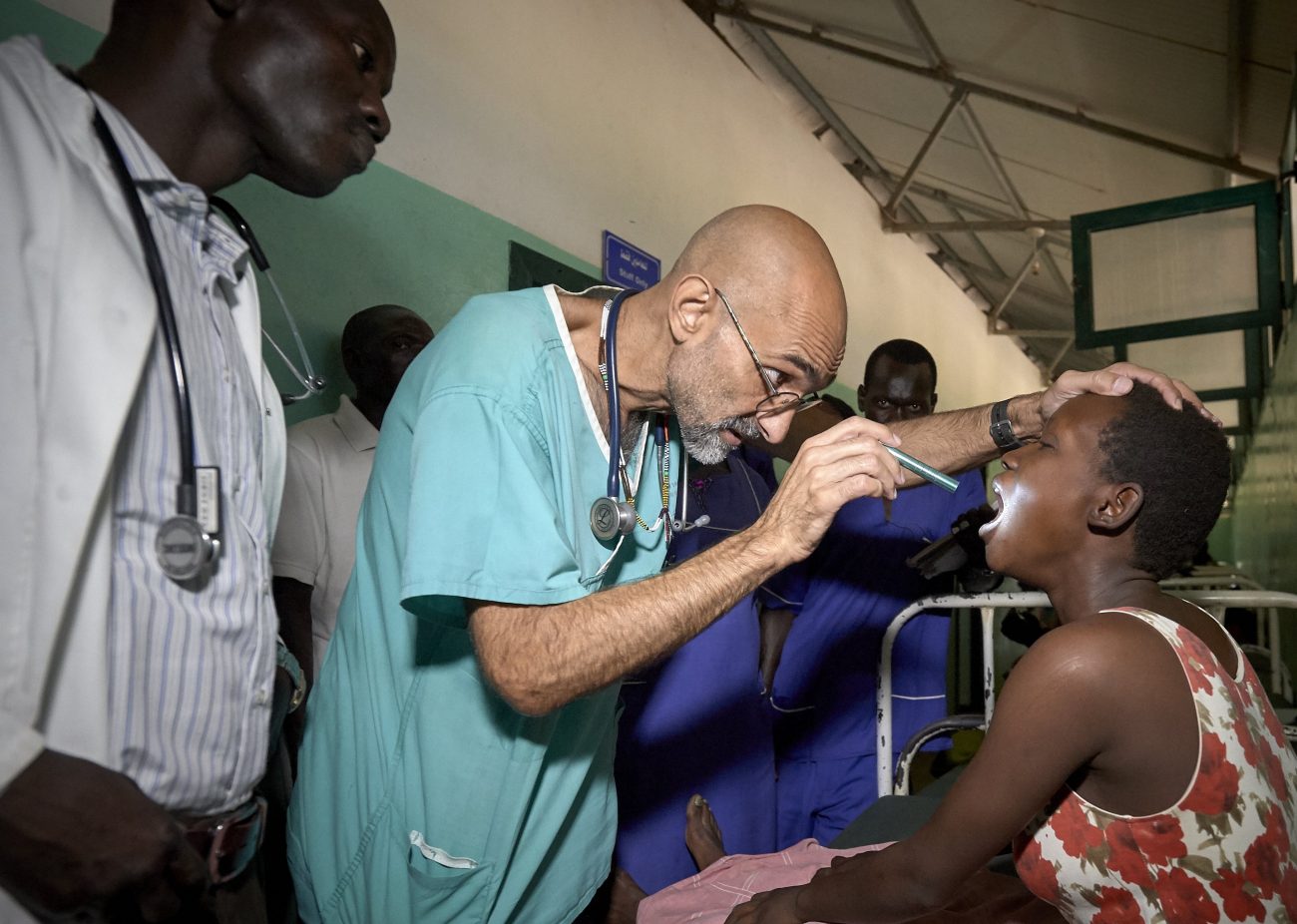In his 2013 apostolic exhortation “Evangelii Gaudium” (“The Joy of the Gospel”), Pope Francis spoke of his dream for a “missionary option” (No. 27). To Pope Francis, this “option” is a new order of priorities in the everyday reality of ministry within the life of the church that moves from an outlook of self-preservation to evangelization.
What might this missionary option mean for us this Lent?
The pope’s greatest dream is that we are a church that does not stop to navel gaze. Instead, he envisions a community that “seeks to abandon the complacent attitude that says: ‘We have always done it this way'” (No. 33).
Pope Francis notes that this option does not look like small changes, like the addition of a new ministry program or change in a personal prayer routine; rather, what he dreams of is an entire change of heart and reorienting of attitude.
He envisions a pastoral conversion that transforms everything from the root, including “customs, ways of doing things, times and schedules, language and structures” to make the church “more mission-oriented, to make ordinary pastoral activity on every level more inclusive and open, to inspire in pastoral workers a constant desire to go forth and in this way to elicit a positive response from all those whom Jesus summons to friendship with himself” (No. 27).
[hotblock]
Pastoral conversion requires us to shift our gaze from ourselves to the world in need around us, from those closest to us to those furthest away.
As pastoral ministers, Pope Francis’ call to pastoral conversion may seem like an exercise mainly aimed at making changes in our ministerial life. However, Pope Francis’ exhortation to transform everything with a mission-focused mindset is an invitation not just directed at the church — it is a call to a dramatic shift in our own priorities, intentions and practices to become personally mission-minded.
What wisdom does this call to pastoral conversion hold for our journey through Lent as pastoral ministers?
In “Evangelii Gaudium,” Pope Francis notes that a “missionary option” is one that radically transforms everything. What Pope Francis advises is not a quick fix, but a wholesale process of discerning everything, considering if it truly leads to a deeper relationship with Jesus Christ.
A Lent reimagined according to Pope Francis’ call to pastoral conversion involves considering our present spiritual habits and practices, evaluating them for their fruitfulness, before adding new practices or subtracting others.
After looking inward, Pope Francis’ vision for pastoral conversion encourages us to then look outward. He reminds us: “It (is) clear that the Gospel is not merely about our personal relationship with God” (No. 180).
[hotblock2]
In other words, the pope calls us to take stock of our spiritual life not just as an exercise in itself, but to consider how our spiritual practices and habits form us to be in relationship with others and God. Do our spiritual practices inspire and prepare us to love and accompany others in our life and ministry?
After reflecting and discerning, Pope Francis’ call to pastoral conversion requires us to take action. He reminds us that being on mission involves “taking the first step” (No. 24). In our life and ministry, pastoral conversion requires us to take initiative and get involved.
In the Gospel of Matthew, Jesus commands the church to make disciples, using the word “Go!” (Mt 28:19). Inspired by Jesus, Pope Francis encourages us to remember that evangelization is not a spectator sport; rather, we are sent out as missionary disciples for the purpose of making missionary disciples.
This Lent, let Pope Francis be your guide. Rather than giving up chocolate and saying, “I have always done it this way,” dream of pastoral conversion that is capable of transforming everything in both your life and ministry.
***
Campbell is coordinator of formation programs at the Catholic Apostolate Center, and a doctoral candidate in catechetics at The Catholic University of America. She is co-author of “The Art of Accompaniment: Theological, Spiritual and Practical Elements of Becoming a More Relational Church.”
PREVIOUS: Readings of the Holy Mass – First Sunday of Lent
NEXT: Growing our hearts this Lent through a ‘spiritual game plan’




Share this story